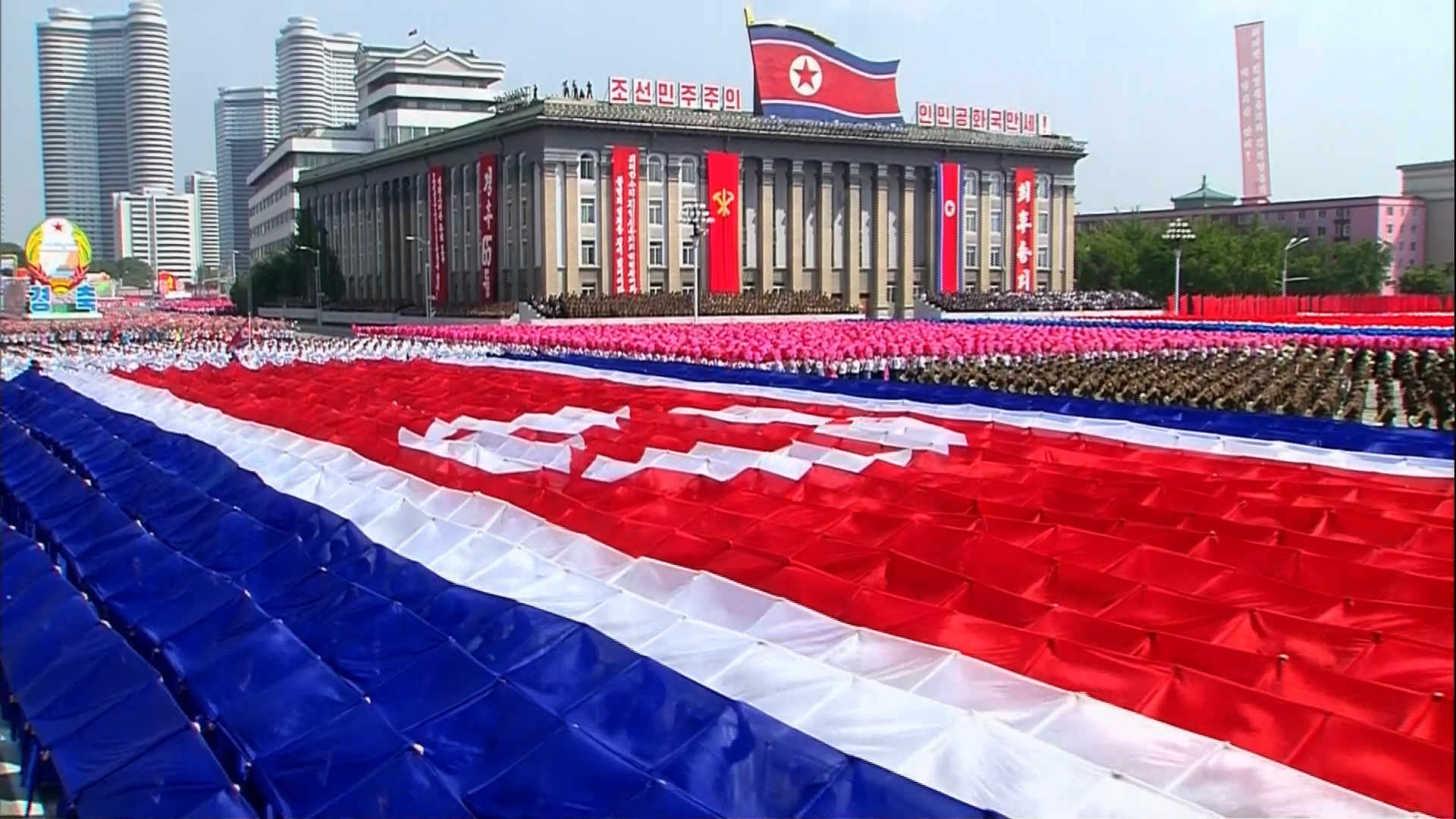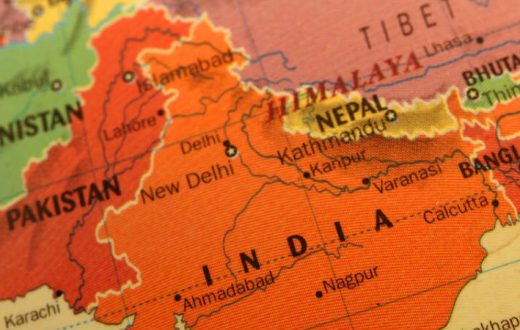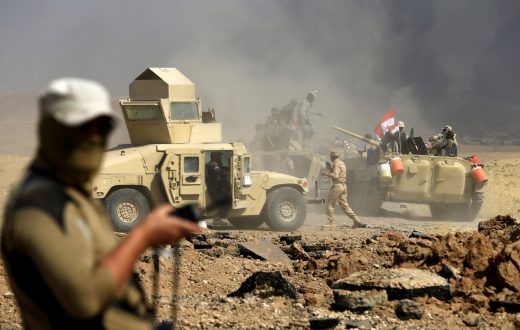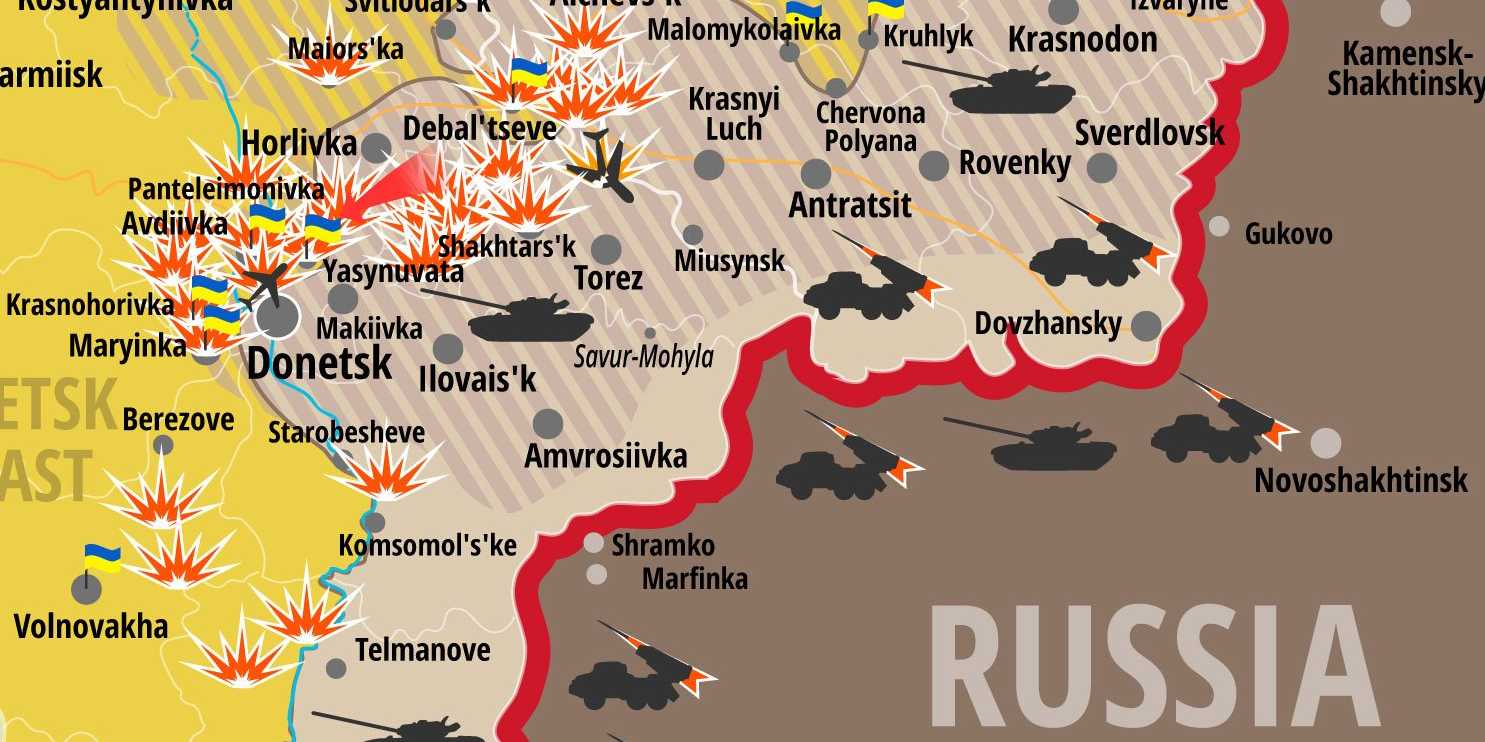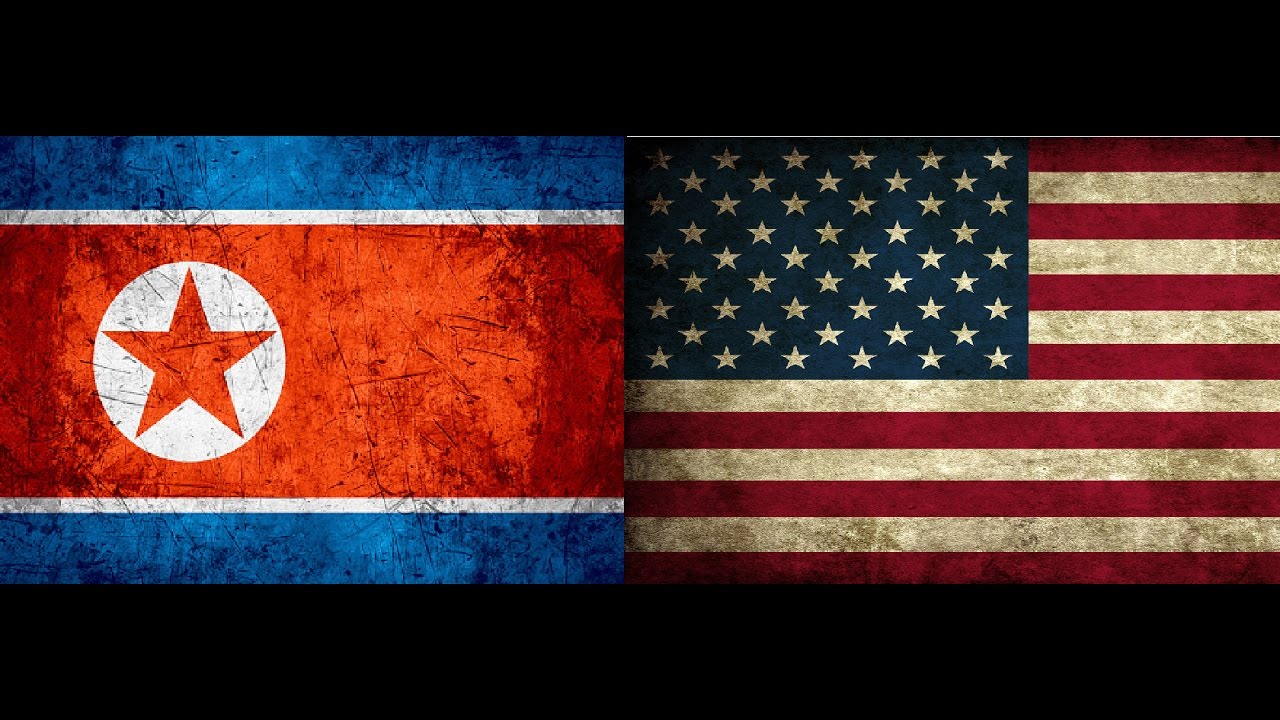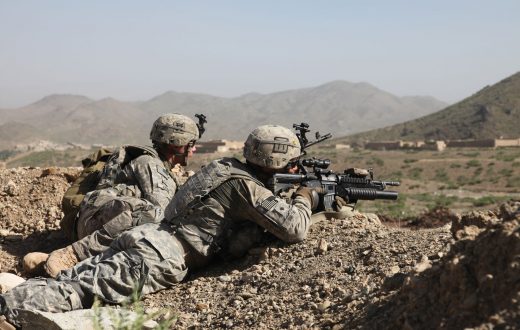One of Young Diplomats Journalist visited North Korea and wrote an in-depth analysis for Young Diplomats. The Democratic People’s Republic of Korea (DPRK) is the official name of the state commonly referred to as ‘North Korea.’ A country built from the Cold War and surrounded in controversy for over sixty years, the DPRK has been in the spotlight much more since the Trump administration took office.
How to deal with the perceived International threat of the DPRK
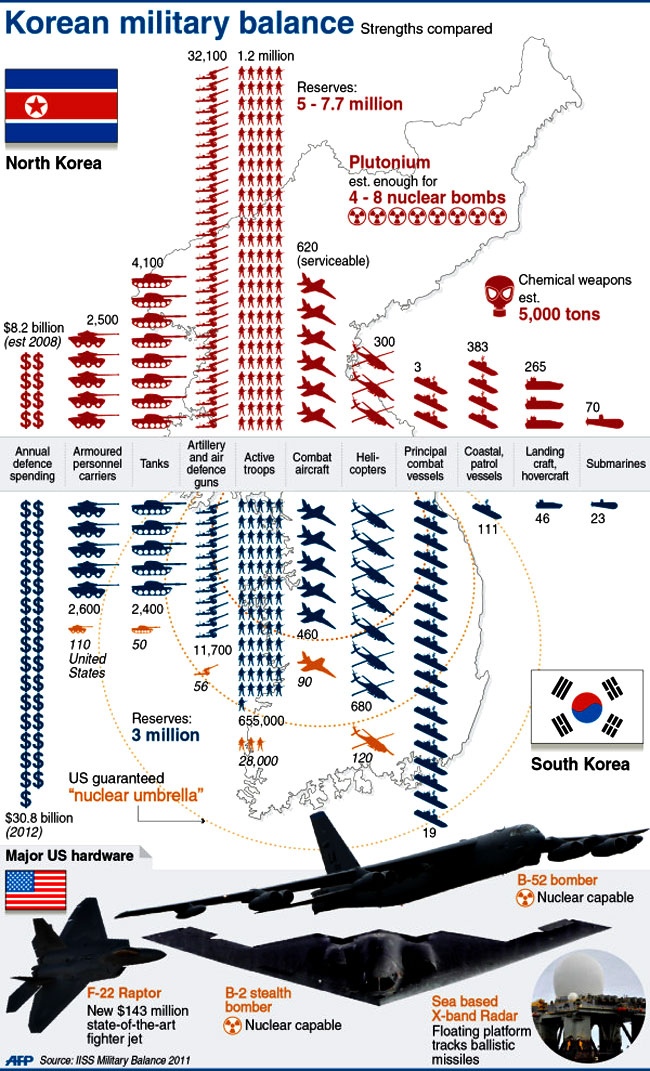
Not to say that the country wasn’t at the centre of international politics beforehand, however the Trump administration has made it its goal to ‘properly tackle the issue of North Korea.’ The DPRK dictates its foreign policy through demonization of the United States, Japan and South Korean leadership, as well as through their ‘Songun,’ or ‘military-first’ policy.
‘Songun,’ or ‘military-first’ policy.
Referring to the nation as a ‘rogue state,’ ‘a state sponsor of terrorism,’ and ‘the Hermit Kingdom’ all might be true descriptions of a country who since the fall of the Soviet Union has been pushed further and further out of the international sphere and into a political corner. However, is this the correct way to deal with the perceived international threat of the DPRK?
Such political war of words is business as usual in this area of the world which has never ended with the nuclear holocaust the media would like the average reader to be worried about.
Why DPRK is not an irrational international player
In the last few weeks, international news has been flooded with news about the Korean Peninsula. At this point, one could easily come to the conclusion that we are on the brink of a new Korean war and maybe even a nuclear one. That is simply just not true. The threatening rhetoric coming from both the DPRK and the Trump administration is nothing new and nothing to take too seriously. Such political war of words is business as usual in this area of the world which has never ended with the nuclear holocaust the media would like the average reader to be worried about.
While it is true that the regime in the DPRK is a non-democratic, totalitarian dictatorship which uses a ‘cult personality’ to indoctrinate its citizens into believing its xenophobic and nationalistic approach to domestic and global politics, the country is not an irrational international player by any definition of the term. If the regime in the DPRK was at any point irrational, we would not have gotten this far without a second Korean war and as a result, the regime would have fallen along with the Soviet Union, or maybe even earlier.
Why US tactics in the Middle East won’t work with North Korea
The current United States’ leadership under the Trump administration has taken a clear and aggressive stance against the DPRK in order to ‘fix the North Korea problem.’ As such, President Trump has attempted to use Middle Eastern political tactics to send messages to the North Korean regime. It has been alleged that the fifty-nine missiles launched at Assad’s air force in Syria, and the dropping of the Massive Ordnance Air Blast missile (MOAB) in Afghanistan recently were messages to both regimes in the Middle East as well as the DPRK.
Although this tactic to threaten and use force in the Middle East may work against regimes in that part of the world, such tactics never have and never will work against the DPRK regime. Not that this is a new philosophy, it can be seen in the enhanced pace of missile tests as well as counter threats on behalf of the DPRK regime. To create a foreign policy towards the Middle East and the DPRK based on the same principles is simply wrong. The two are completely different in their capabilities, politics and reasoning.
To create a foreign policy towards the Middle East and the DPRK based on the same principles is simply wrong. The two are completely different in their capabilities, politics and reasoning.
North Korean Geopolitics
Geo-politics in both regions for example are based on very different ideas. Middle Eastern alliances and tactics are largely formed on sectarianism, while DPRK aligns itself based on Cold-War-style politics, other isolated states in which business can be done through and foreign currency obtained, and others who see themselves as an opposition to Western states and their ideologies. Middle Eastern leaders seek legitimacy through religious means and hostility towards a common enemy, while the DPRK leadership attempts to gain legitimacy as a major player in the ‘old second and third worlds.’
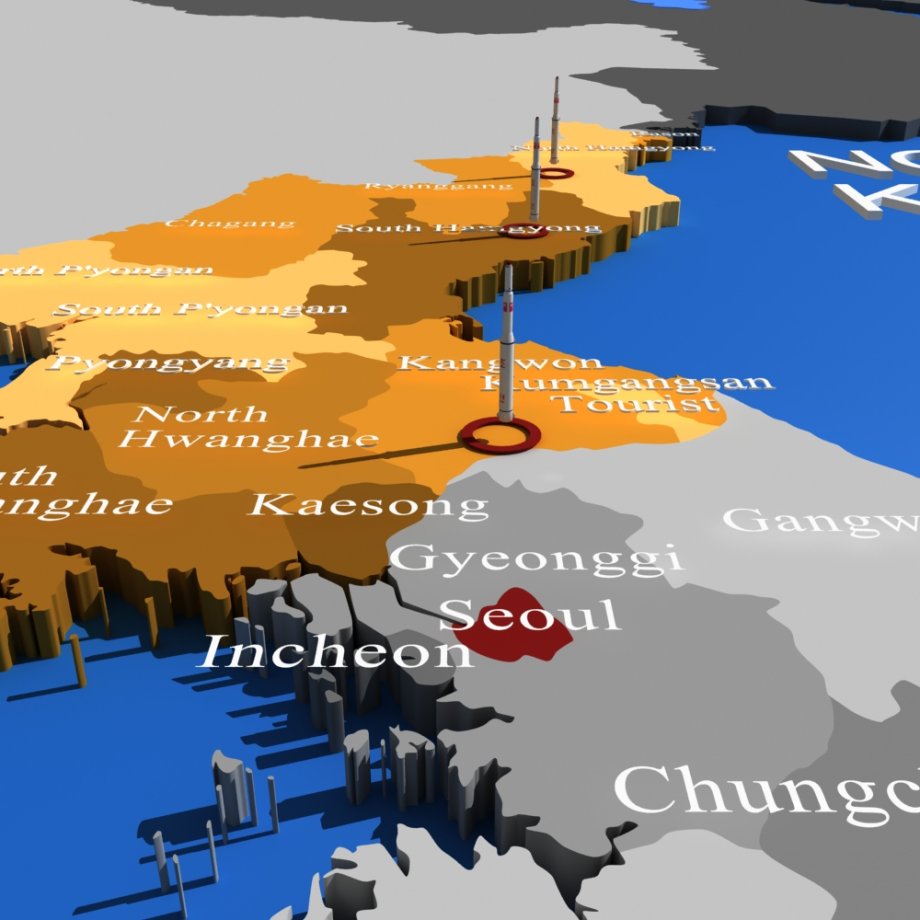
The DPRK leadership seeks internal legitimacy through excessive use of propaganda as well as demonization of its enemies. While it may be true that the DPRK is a state sponsor of terrorism, primarily in the Middle East, it’s not because the regime believes in radical Islamic ideology, or religion at all for that matter.
The country, which follows ‘Juche’ ideology (an ideology based on writings by its founder, Kim Il-Sung), forms alliances with states and organizations such as Iran, Hezbollah, Hamas and the Assad regime in Syria as a form of political and military support against what they perceive as hostile western influence or imperialism affecting both the Middle East and the Korean Peninsula, allegedly.
With that said, the conclusion is simple, current American policy of using force in the Middle East to threaten the DPRK is a baseless and ineffective policy which attempts to show strength, while the citizens of South Korea and Japan pay the political price. Put more simply, while it may work in the Middle East it will not work in the Korean Peninsula.
Predictable Politics
Politics on the northern side of the Korean peninsula may also be some of the most predictable in the world. In order to properly dissect and understand the actions of the DPRK regime, one needs to properly understand the reason for their actions. As mentioned earlier, in no way is the regime an irrational one and does not seek the end of humanity. Kim Jong-Un, the third dynastical leader of the DPRK realizes that the only way to ensure the safety of his regime is to acquire nuclear weapons. Contrary to popular rhetoric which attempts to demonize the DPRK, this is not an uncommon concept among countries who have acquired nuclear weapons in the past.
These countries are India, Pakistan and Israel, to name a few who have acquired nuclear weapons to ensure deterrence and the life of their states respectively.
Secondly, both the United States and the DPRK know that the price for any pre-emptive strike is far too high for either of them to even consider being the first to strike. Kim Jong-Un and his entire government know very well that in the event of a second Korean war, they would not be in power by the end of it and the entire peninsula devastated. On the other hand, the United States knows very well that any pre-emptive strike would risk the lives of millions of South Koreans and Japanese citizens who are easily within the target range of DPRK missiles and its military. Clearly, neither side is willing to take the chance of the other’s second strike capability, nor are the governments or citizens of South Korea and Japan, neighbours and enemies of the DPRK and allies of the United States. So why continue on this path to nowhere?
The THAAD Equation
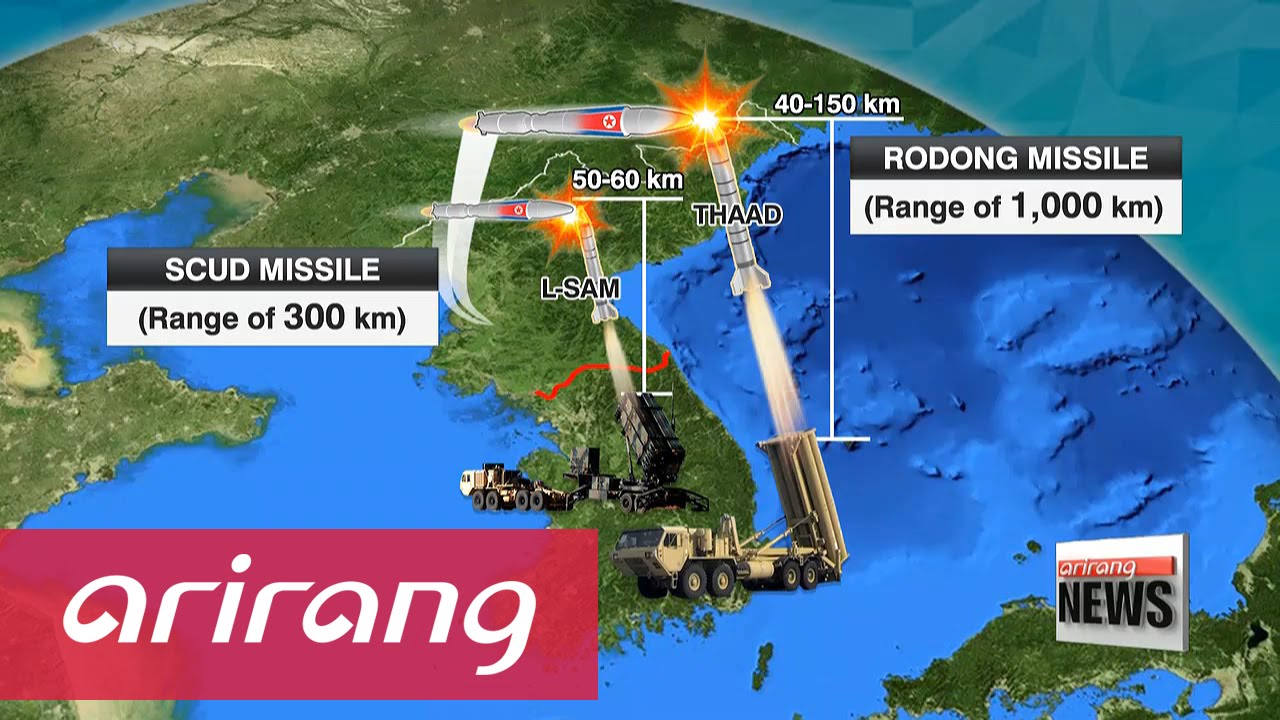
The United States has recently deployed the THAAD anti-ballistic missile system in the territory of South Korea amid local protests as a response to DPRK hostilities. This of course coming with harsh criticism from Russia and China. Instead of working with China to find a solution to a nuclear Korean Peninsula, the Trump administration has chosen to act largely independent on an issue it seems to know nothing about. China, being a neighbour and historical ally of the DPRK, needs to be seen as a major catalyst in any deal or political arrangement made north of the thirty-eight parallel. The DPRK government relies on exports to and through China for almost all of its international economic activity. This is the only way in which the international community can effectively put pressure on the DPRK government if it chooses to go down that route.
What does North Korea wants?
What does the DPRK regime actually want? As someone who has been on North Korean soil and has discussed politics with various accompanying officials, its simple to understand the feeling of the regime. Yes, many may argue that anything said or done on a trip to the country is fake and scripted and not a good example of what actually goes on in the country. While this may be true, it is a rare opportunity to understand the direct position of the regime pertaining to specific political questions asked, especially if those answers are scripted.
Not only that, it’s an opportunity to have that conversation with a citizen of the state and not with foreign correspondents. Some of the most sensitive issues facing the government of the DPRK are reunification of the Korean Peninsula, the approximately 30,000 American soldiers on active duty in the South and of course the development of nuclear weapons in order to ensure the survival of the state in its present form. While the world may look at the last part with negativity, as a matter of fact DPRK regime under Kim Jong-Un, his father and grandfather before him are correct. The only way that they can ensure their existence is with the development of nuclear weapons. As long as they feel threatened by the United States and there are American soldiers present south of their border, the international community has nothing to discuss with the DPRK in regards to their procurement of nuclear weapons and should not expect the regime to comply with threats to stop the development.
The current situation comes at a time with extreme political importance in South Korea. With the recent impeachment of South Korean president Park Geun-Hye for corruption allegations and new tactics of peace and recognition of the north by presidential frontrunner Moon Jae-In.
The international community lead by President Trump might be better off to leave the peninsula as it is and allow the Koreans themselves dictate the future of their historic homeland. It’s important to note that most young South Koreans are very indifferent to the idea of reunification and DPRK politics in general, although they are easily heated by the mention of the marshal, the leader Kim Jong-Un. The cost of reunification for the citizens of the south would be over one trillion dollars, by conservative estimates.
It would be a burden on the younger generation that would dwarf the price for reunification in East and West Germany by hundreds of billions of dollars. Whether the regime is seen as legitimate or not, the risk and potential cost is simply too high to try to solve any hostilities through Cold-War-style war games. From the North Korean perspective, until the United States is willing to recognize the Kim leadership and pull out its troops from the South, there simply is nothing to discuss in regards to the immediate halt of its nuclear and ballistic missile programs, and rightfully so. Any move of course on behalf of the Americans would have to include China, although the Trump administration has very adamantly displayed that they are willing to act without their participation. If South Korea and its citizens can potentially accept a separate Korean state to its north, then why is it so unimaginable for the international community to follow suit?
Predictable War Scenarios
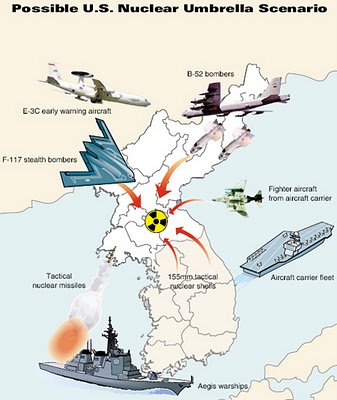
What will happen over the next few weeks and months between the DPRK and the United States is quite predictable. As the American government continues to threaten the use of force, the DPRK regime will follow with similar rhetoric aimed at the Americans, South Koreans and Japanese. This of course while attempting to test and continue their missile development at a more intense pace. This is how they have historically responded to American threats and this is how they will continue to respond to those threats. Neither the United States, nor the DPRK will launch any form of pre-emptive strike on the other as long as the potential cost is millions of lives and the fall of the regime. As long as China, both a neighbour of the DPRK and part of its Cold War allies is not an official participant in the engagement between the international community and the DPRK, the ultimate result will be a failure, something the world needs to recognize.
If that is not recognized, the only reasonable option is to allow for an internal collapse of the state through natural market means. This ‘natural change’ can be witnessed through the smuggling of South Korean and Hollywood movies into the DPRK by its citizens, as well as the local demand for more open economic policies and practices, especially in areas where the government can no longer manage. This is an issue that has plagued the regime in the DPRK since the famine during the nineties and will continue to do so as information travels more easily across their borders because of technological advances and local demand. Taking the above into account while following developments over the last few weeks, the world media would have the average viewer believe that we are on the brink of a new Korean war, if not a ‘nuclear holocaust,’ this is a lie.

